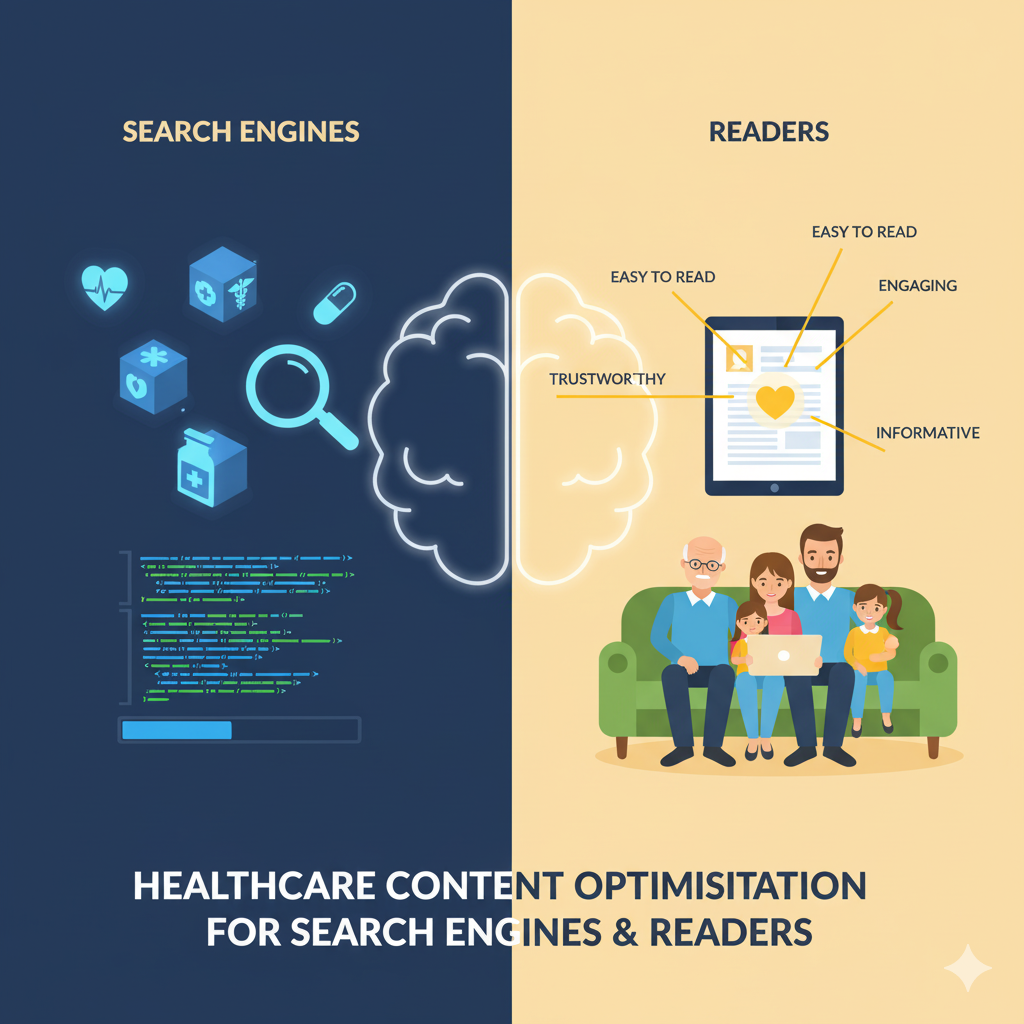Even the most accurate healthcare information can get lost online. Patients, charities, and healthcare professionals often struggle to find the content they need, simply because it isn’t optimised for search engines. That’s where SEO for healthcare content comes in.
Whether you’re a freelance medical writer, a healthcare charity, a medical clinic, or a research organisation, ensuring your content is discoverable online is essential. Done right, SEO helps your target audience find your content quickly, improves engagement, and establishes trust.
What is Healthcare Content SEO?
SEO, or Search Engine Optimisation, is the process of making healthcare content easy to find for both search engines and readers. It ensures that patients, healthcare professionals, and organisations can quickly access accurate medical information online. In healthcare in particular, SEO is not just about keywords, but also about clarity, credibility, and compliance.
Key SEO techniques include:
- Using patient-friendly keywords such as “cancer support information UK” or “arthritis guidance for patients”
- Writing clear headings and subheadings so humans and search engines alike can understand your content
- Adding meta titles and descriptions that summarise your post accurately
- Including internal and external links to reliable healthcare sources, such as the NHS website for England or the Patient.info website
Why is SEO for Healthcare Content Important?

- Increases visibility: Helps your content to appear in search results when people look for specific health information
- Builds trust and enhances credibility: Clear, accurate, and well-structured content shows credibility
- Improves engagement: Easier-to-read content keeps readers on your site for longer
Common SEO Mistakes in Healthcare Content
- Using overly technical language that patients struggle to understand
- Missing important meta titles and descriptions, which tell search engines and users what your page is about
- Lack of headings or subheadings for structure
- No internal or external links to authoritative sources
How to Optimise Healthcare Content for Search Engines
- Use patient-friendly keywords such as “headache relief”, “signs of diabetes”, or “how to treat eczema”
- Write clear headings and subheadings that summarise each section
- Include meta titles and descriptions for every page
- Add internal and external links to reputable sources
- Keep sentences concise and highlight key points
Tips to Engage Readers While Boosting SEO
- Break up text with either bullet points or numbered lists
- Use images with descriptive alt text so that visually impaired users understand the content and search engines can index the images properly
- Include FAQs with clear, concise answers
- Link to related blog posts on your site
Effective healthcare content is about more than accuracy, it’s also about being found and understood. SEO for healthcare content ensures your work reaches the right audience, guiding patients, professionals, and organisations to the information they need without getting lost online.
If you need help making your healthcare content more visible, bluRB.digital can provide expert support to optimise your writing for search engines and reach the people who need it most.



